Can You Sell A Condemned House In California
Expert Advice
Selling A Condemned House In California
We’ve got you covered; here is a breakdown of some of our clients, most important questions, and responses to Selling A Condemned House In California.
Hi there, I am Marc, the owner of Sell Quick California. I will be the one answering all your home-selling questions. Our most important questions, we have them listed here below.
For a more thorough consultation of your situation, feel free to fill out the form. Don’t worry; it is all free without any cost involved and without obligation to accept any offer we make to you. If you rather talk to a live person, feel free to call us at my directly at +1(866) 497-8248.

A condemned house in California most often cannot be sold in its existing state. However, if you ask, can you sell a condemned house in California? The answer is yes. While the house itself could be worthless, the land has value, and the asking price could reflect the value of the land.
When selling a condemned house, the price will be lower because the buyer will have to be financially responsible for demolishing the structure, but yes, you could still sell the property.
What is Condemnation in Real Estate?
In real estate, condemnation happens when the government attempts to take property from a private owner. For example, condemnation of a building through some governmental function is known as eminent domain.
Usually, in a condemnation proceeding, the courts decide if the taking of the property is legal and will also determine what compensation is appropriate.
The simplest condemnation real estate definition is that a notice of condemnation has been issued to a property owner. They will post the note on the building’s front door, and the owner must vacate their home immediately and stay off the property until the building is brought up to code.
Can You Sell A Condemned House In California
Condemned Houses Questions Answered
Condemnation of a building serves as a means of enforcing the necessary safety and housing cost for dilapidated and abandoned properties. The government or a private entity can use this process to acquire properties legally. Condemnation can be done via eminent domain, causing a seizure of the property from the owners.
An unusable or unsafe property is condemned. For example, a home is almost always declared uninhabitable before it is condemned. However, specific problems will cause the government entity to say a home is uninhabitable. Later, the government can place the building into condemnation status if the building is not restored.
Inverse condemnation occurs when your property or the plaintiff’s property is damaged significantly due to a property the government takes for public use.
If your town decides to widen a road that will take up some of your driveway or a part of your building, you will be entitled to compensation for the fair value of your property. However, in such a case, the government is entitled to seize your property, “condemning” it via inverse condemnation real estate rules.
The difference between condemnation and inverse condemnation is who initiates it. In the case of eminent domain, the government body is the one that begins the condemnation. Whereas in inverse condemnation, the property owner starts the condemnation. The latter occurs when the government fails to pay a reasonable payment for condemned or damaged property so the government can use all or part of the premises.
These premises are often unsafe to enter and can even be dangerous to the community in which they are present.
Municipalities sometimes order the demolition of condemned housesto protect the community, but this is only sometimes the case.
You can change the status of your condemned house by making the necessary repairs to come up to code.
A mortgage requires homeowners to take reasonable care of their homes. When a house is labeled as condemned, your mortgage lender can recall the loan, or they can send the property into foreclosure. If the mortgage lender recalls your loan, this will harm your credit and make rehabilitating or selling the property even more complicated.
If your property is going to be condemned, you will receive one of two notices. There is a condemnation notice if your property violates building and safety codes, and there is a notice that your property is required for a public project. The latter indicates that a federal or state local government authority is interested in your property or would like to acquire your property. This procedure is known as condemnation by eminent domain.
If you are the owner of the private property to be condemned, you are protected by the Fifth Amendment. The following are relevant to you in this case:
Public Purpose – As per the Fifth Amendment, the government only reserves the right to condemn your private property for a general purpose. While not clearly defined, “public purpose” does have some guidelines.
Due Process – With the fifth and fourteenth amendments, every citizen is entitled to due process of the law before the government can take over their property. As the landowner, you are entitled to notice and to be heard by the government before being deprived of property. Landowners have this right when their property is condemned via eminent domain.
The notice you receive should provide helpful information for you and other interested parties and give you adequate time to respond.
Just Compensation – The Fifth Amendment requires the condemning authority to provide the property owner with compensation when a property is condemned via eminent domain. The fifth amendment will provide you with a financial payment to compensate for your loss. In addition, you may be entitled to compensation for a part of the property taken and any damages to the remaining property.
Expense Reimbursements – State laws allow property owners to recover some expenses, such as relocation costs, attorney fees, survey or appraisal fees, and other expenses incurred when the government exercises eminent domain.
Dispute – You can dispute by consulting with an attorney to see if you can fight back when the government attempts to condemn your property. An experienced lawyer can help you identify any grounds you could use to challenge the government’s decision. They will also help you to identify and assist you in obtaining fair compensation for your property.
The right lawyer can help you navigate the prostate of eminent domain litigation; this process can be very complex, with many procedures and deadlines.
When a property is designated as ultimately condemned, this terminates any lease agreement, as there is no longer a property in the tenant to reside. A condemned house must be vacated and remain uninhabited until the building is restored, according to whatever building or safety codes are in violation.
A condemned property is often highly damaged, deteriorated, or dilapidated. As a result, these buildings are usually at risk of collapsing and becoming a safety hazard to people that live in and around them. In addition, they are typically unattractive and a blight to their community.
A condemnation notice is a formal written notice from the government indicating to a property owner that the government intends to acquire the property via the power of an eminent domain.
A small amount of mold growth will prevent a home from becoming condemned. However, if there are many infested areas of the home, then there is a good chance the house can become condemned due tomorrow to grow. Remember, a house is condemned when it becomes unsafe or uninhabitable. Excessive mold growth can cause a home to become dangerous to live in.
When a house is condemned, a notice is usually sent out, which is typically placed on the front door of the building. The message will include the date of condemnation and the grounds for condemnation and will have information for the government agency that issued the notice. Tenants of a building being condemned will also receive a copy of the condemnation notice via mail.
A horse can be condemned for hoarding as long as the conditions have deteriorated sufficiently for the local Health Department to condemn the property. If there is hoarding of garbage and other debris that may affect Public Health, you can contact the local authorities for violation of housing codes. Even though the home structure may be safe and habitable in a situation like this, the garbage and the breeze make the building unsafe and uninhabitable.
Making a building like this uncondemned is usually a straightforward process. Has the house been cleaned and all garbage and debris removed? After doing this, you can order an inspection, and the condemned status can be removed from the home, allowing it to be inhabited as long as no other codes haven’t been violated.
Usually, when a house is condemned, it is because of repeated violations of the housing or safety codes of the building. However, an abandoned house left for a specific time can pose a safety risk, and be content with that fact.
However, not all properties become condemned because they are left inhabited. And can decide to renovate a house, which after inspection, can prove to have no more severe violations, so there is no need to condemn the house.
Sometimes there’s nothing wrong with the house, but there may be permits that need to be displayed correctly or are completely missing, making it seem like a home violates codes when it is not. Also, there may be work on the house that needed to be done correctly so that an inspector may have found it unsafe but not condemned.
Then there are those houses condemned because of a lack of sanitary conditions. This includes plumbing not working or clutter accumulating, and it has caused infestations in the home.
The presence of black mold in a home can cause condemnation, or a house that has undergone significant structural damage can be condemned.
Lastly, the government can condemn your house because the government may need some or all of the property for public use. For example, if a street needs to be widened or a public facility close by needs to be improved, this would encroach on the land where the house is built. In the latter case, the government can seize the building even if there are no housing or safety code violations. This type of condemnation is known as eminent domain, where the owner receives compensation for their property at the current market value.
When the building is condemned by eminent domain, the property is often taken through federal or state powers because the area is necessary for important public use. For example, the local or state government can exercise eminent domain for using the land to make levees, parks, and roads, among other things.
If natural causes destroy your home, you will still need to pay your mortgage, as your mortgage obligation will still be in effect even if your house does not exist. In addition, when a property is condemned, the mortgage company can take it back alone or put your home in foreclosure. A loan recall or foreclosure will harm your credit score.
Yes, you can sell a condom property. You can sell the property as is, and the new buyer can determine if they would like to fix the house or if they would like to demolish it. You can also make repairs before selling the home if you have the financial means. If you’d like to get the best bang for your book, it would be beneficial to repair the house before the sale to bring it up to code requirements and sell it for a better price.
If the local government has condemned your property, but they have yet to take eminent domain over it, there are several ways that you can go about selling your property. But overall, the general answer to the question, can you sell a condemned house, is a definite yes.
If someone knowingly sells you a condemned house and does not indicate that the government condemned it, you will be within your rights to sue them. The home seller disclosure law requires a seller to know if a house is being sold and has any defects. If you can prove that the seller was aware of the flaws before the sale, which they would if the building is condemned, you can use them in the legal court system.
If you know a building that may be answering everyone’s habitation, you can start by reaching out to the landlord or owner. Then, you can report the issues to the local health department if this attempt is futile. The health department will assign a health inspector to perform an in-home inspection to check for health code violations. If the assessment shows violations, the owner will receive a time allotment to get the building up to code. In extreme cases, the government can order the demolition of the building. c
You may also contact electrical inspectors, who are plumbing inspectors, if you think other conditions are unsafe within a particular building.
Concerning condemned real estate, it is mainly investors who will pay cash for condemned buildings. As a result, they can make the overall sale and close much faster since there is no need to deal with lenders.
Be sure to choose an investor who is willing to pay cash and knows the building rules in your local area and the condemnation process. Working with someone who already knows the process makes the process easier for you and allows the process to go smoothly.
Investors will purchase your home, restore it, and then use it as a rental or place it back on the market for sale. They may also fix the house or demolish and rebuild it. They may then keep it off the real estate market for a couple of years before relisting it and selling it for a profit.
When selling condemnation real estate, you must prepare yourself to receive a fair offer price, which is affected by the condemned status of your home. Other than that, the overall selling process of a condemned house is similar to a regular real estate transaction. The only other exception is that you won’t have any real estate agents or mortgage lenders involved in the process. The investor will pay for closing costs and an attorney if and where necessary.
Getting assistance to sell your condemned home from a real estate agent is still possible. However, finding a buyer may take more work, depending on the market in which your preferred real estate agent operates.
If you want to go this route, try to find a real estate agent with experience working with condemned properties. They can tell you immediately if there is any current interest in those properties, and they can estimate the potential current market value if you sell the property as is.
Traditional buyers seeking a home to live in will be less interested in your condemned property. But buyers seeking to improve or build their own space from the ground up can get a good deal on a condemned property when they buy from you.
For some, the best option is to bring the home up to code and put it on the market. This avenue allows the property owner to get more for the property since it will be in a habitable condition, and this will open up the potential buyer pool a lot wider than when you’re trying to sell the condemned building as is.
If you don’t have the financial support necessary to restore a building to meet specific code violations, you will be better off attempting to sell your condemned home as is.
A traditional buyer could purchase your condemned house if they are paying cash. However, mortgage providers and lenders will be concerned about the condemned home and may not be willing to risk lending money to support these ventures.
According to the condemnation real estate definition, a condemned house is simply a home that is no longer safe to live in or a property where some or all of the property was damaged or used for public purposes. You can buy a condemned house and sell a condemned one. However, it is best to get an expert to help guide you through either side of the process. Expert advice can mitigate risks and help you to get the best bang for your buck.
Video Guides
Condemned Houses FAQS
California Homeowner Resources
- Stop Foreclosure In California
- Probate Sale In California
- Can You Sell A House That Is In Pre Foreclosure In California?
- Selling Inherited Property in California
- Can You Sell A Condemned House In California?
- How to Sell a House by Owner in California
- How to Sell a Hoarder House in California
- How to Sell Rental Property with Tenants in California
- Selling A Fire Damaged House In California
- How to Sell Rental Property in California
- Selling A House During Divorce In California
- Capital Gains Tax On Selling A House In California
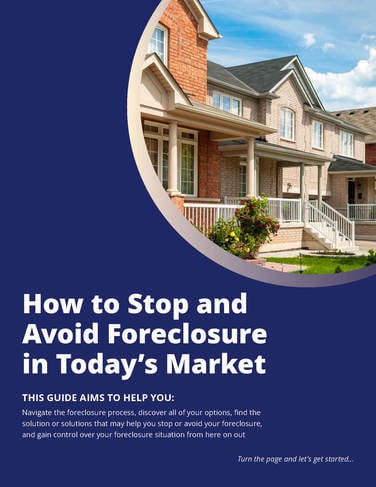
How to upsize into a bigger home
Free Seller's Guide
How to Stop And Avoid ForeclosureStop Foreclosure Guide


Probate Sale In California
Probate Sale In California
Probate Sale In CaliforniaProbate Sale In California

How to upsize into a bigger home
Free Seller's Guide
Can You Sell A House That Is In Pre Foreclosure In California


Sell QUick Calofornia
Selling Inherited Property
Selling Inherited Property in California

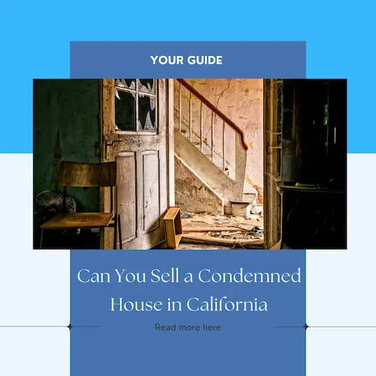
Sell QUick Calofornia
Can You Sell A Condemned House
Can You Sell A Condemned House In California?

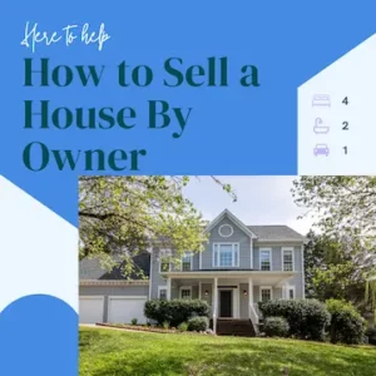
Sell QUick Calofornia
How to Sell a House by Owner
How to Sell a House by Owner in California


How to Sell
A Hoarder House in California
How to Sell a Hoarder House in California


Selling Rental
Property With Tenants
Selling Rental Property With Tenants In California

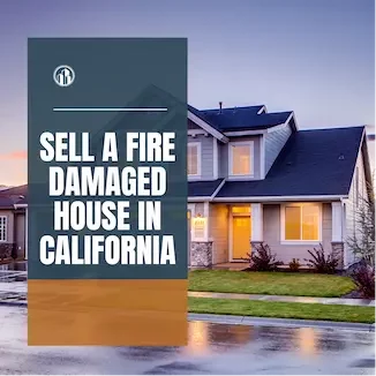
Sell A Fire Damaged House In California
Sell A Fire Damaged House
Sell A Fire Damaged House In California

How To Sell
A Rental Property In California
Probate Sale In CaliforniaProbate Sale In California
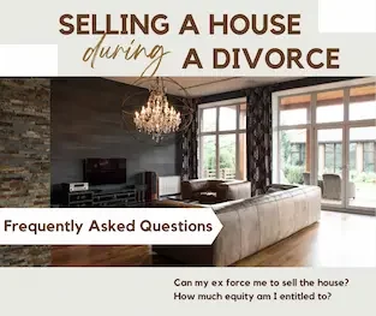
Selling A House
After Divorce Agreement
Selling A House After Divorce Agreement In California





